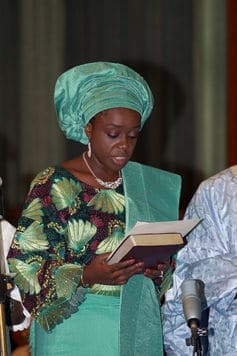IMF Chief Rejects Nigeria’s Loan Request
International Monetary Fund Managing Director Christine Lagarde rejected Nigeria’s loan application due to the country’s potential for an economic rebound, according to AFP. In December, Nigeria announced such efforts as diversification and infrastructure investing—factors which bolstered the IMF’s confidence in Nigeria. The organization will monitor the country’s budget and finances going forward.




